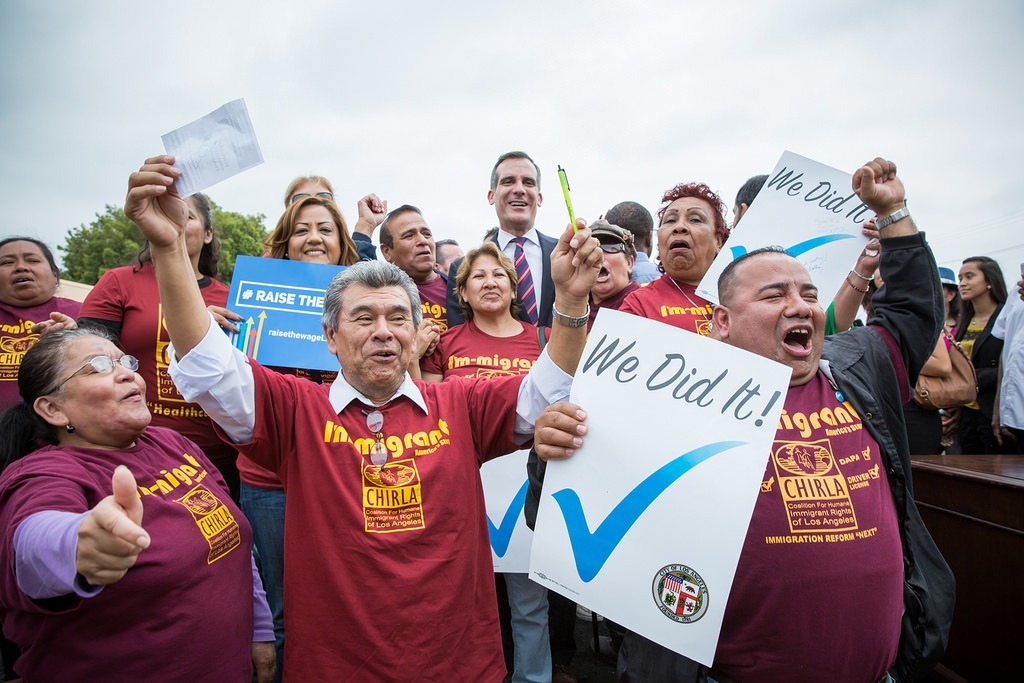
June 24, 2015; Los Angeles Times
Many nonprofit leaders in Los Angeles had mixed emotions about the city’s recent historic hike in the minimum wage—while they strongly supported the social and economic justice of such a move, they were uneasy with the prospect affording the extra payroll expenses, especially those agencies which employed large numbers of low-wage trainees.
The City Council heard that message loud and clear, and is now considering an adjustment to the minimum wage law that would grant certain training nonprofits a temporary exemption.
The Los Angeles Times reports that “nonprofits that help former gang members, the homeless and other hard-to-employ Angelenos get back into the workforce could get a temporary exemption from Los Angeles’ minimum wage hike, a move intended to ensure they won’t cut back on the number of disadvantaged clients they serve.”
Sign up for our free newsletters
Subscribe to NPQ's newsletters to have our top stories delivered directly to your inbox.
By signing up, you agree to our privacy policy and terms of use, and to receive messages from NPQ and our partners.
This move comes after the L.A. City Council last month voted to gradually raise the citywide minimum wage to $15 an hour by 2020. But one of the unresolved issues was how the requirement should apply to nonprofits that train workers. Now, a proposed exemption approved by a Council committee will exempt those nonprofits for up to 18 months.
Workers in such training programs could be paid less than the city minimum wage for their first year and a half of employment through the nonprofit. Supporters of the exemption say those programs provide more than wages, but also invest in their employees by training them, and providing case management and counseling services.
Groups that provide those jobs have said that they would have to reduce the number of people they serve if they were required to pay them the increased minimum wage—one agency said it would be forced to eliminate 60 of its 170 trainee positions.
Business groups have also backed the proposed exemption, but labor has opposed loosening the rules for nonprofits. The city’s lawyers will draft language that would be specific about eligibility for the exemption, before the proposal goes to the full City Council for consideration.—Larry Kaplan













